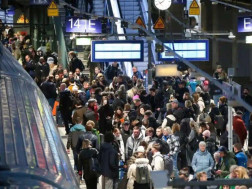Authorities in Germany are attempting to attract a total of 400,000 qualified workers from other countries in order to fill in the labour gaps in critical sectors that have been profoundly affected by the spread of the Coronavirus.
German Minister for Economic Affairs and Climate Action Robert Habeck previously unfolded the plans and several policies he hopes his ministry will be able to achieve. The Minister stressed that the country needs migration to maintain productivity, SchengenVisaInfo.com reports.
Habeck emphasized that currently, Germany has “390,000 job vacancies, which is expected to increase up to and even beyond a million. When we don’t fill these vacancies, then we will have some really serious productivity problems,” as reported by Euractiv.
In addition, the Minister said that the lack of trained personnel in several fields was becoming a problem in many parts of the economy.
According to him, different measures are needed, including better training and the offer of a better work-life balance in several industries where people are more eligible to combine their work with their family situation.
Anyway, Habeck said that “what is definitely needed is a rise in migration, and that is for every branch, from engineers to craftspeople, to carers and health personnel.”
The Minister of Economic Affairs and Climate Action also stressed that the country must do more in order to achieve the CO2 reduction goals and will boost renewables, climate-neutral production as well as energy efficiency.
Habeck stressed that Germany would fall short of its CO2 emissions targets during this year and 2023 and would move to accelerate measures across the energy spectrum.
"We are starting with a severe deficit. The previous climate protection measures in all sectors are insufficient. But we are doing everything we can to close the gap. We’ll have to triple the speed of emissions reductions,” Habeck pointed out.
According to the German Institute for Economic Research, in 2022, over 300,000 people will leave their jobs and retire, while there are not enough young people that would take their places like Germany, like some other European countries, has an aging population.
Based on the Euractiv report, by 2029, the number of persons leaving the job market could be as many as 650,000. In addition, by 2030, Germany could have a deficit of nearly 5 million people who are able to work.
















